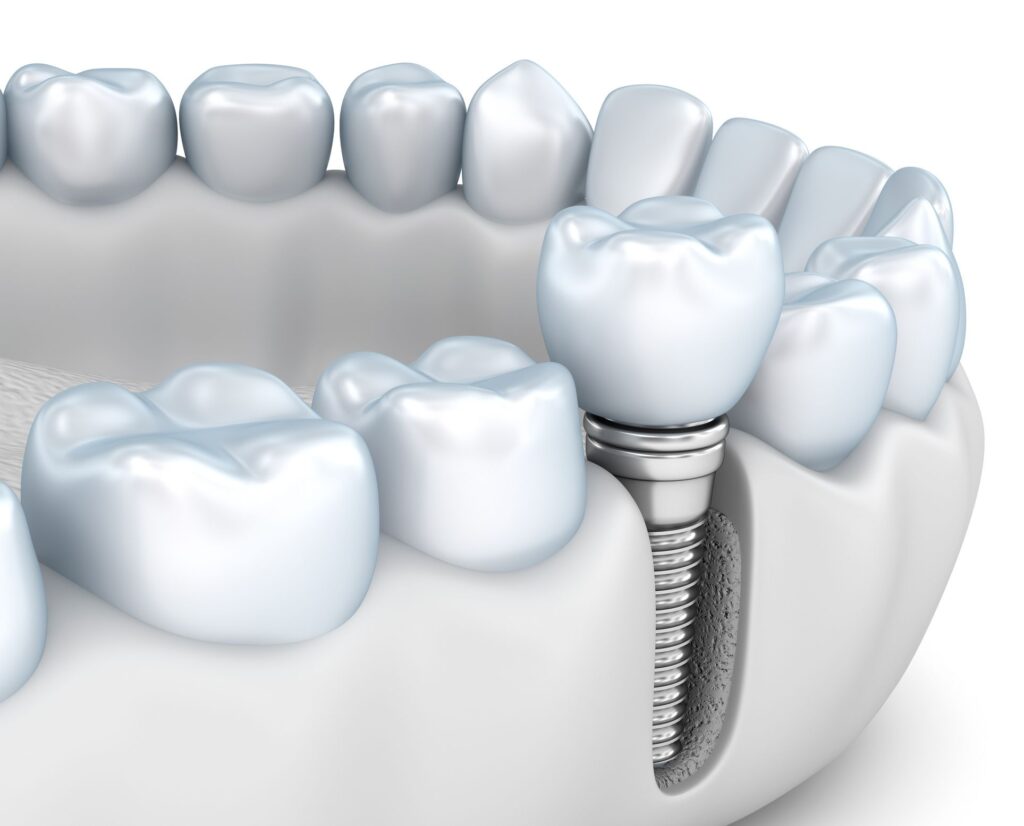Millions of Americans suffer from tooth loss. Whether they have lost one, several, or an entire arch of teeth, missing teeth can majorly disrupt their lives. This condition can also lead to further deterioration of dental health, including in the jaw.
Your dentist can preserve the structure of your jaw by replacing missing teeth with dental implants. You can find the most comprehensive restorative benefits with this fixed tooth replacement solution. Read on to discover how missing teeth can impact the health of your jaw and how implant dentistry can help.


What Happens to Jawbone After Tooth Loss?
In a healthy dental patient, the teeth extend into a root below the gumline where they reach the jawbone. The tooth root stimulates the bone, keeping it strong and stable. When a patient loses a tooth, the jaw no longer receives stimulation.
In the tooth root’s absence, the jawbone begins to deteriorate. This will lead to the appearance of facial sagging and the shifting of remaining teeth out of place. The jawbone will not regrow on its own, and you will need treatment from your dentist both to prevent this problem and to restore your dental structure after this damage.
Can Dental Implants Protect Jawbone Health?
To stop bone loss in the jaw, you will need to seek tooth replacement treatment from your dentist with dental implants. Removable dentures will replace teeth above the gumline, which will not stimulate the jaw or prevent its degeneration. A dental implant features a titanium post anchor that a dentist surgically places into the jaw.
This serves as a substitute for the missing tooth root and stimulates the bone in the jaw after fusing into place. The fixture will stop the jawbone from deteriorating, preserving the structure of the face, teeth, and jaw.
You can also benefit from an enhanced appearance to your smile and restoration of oral function with this tooth replacement. Your dentist can find the ideal type of implant that will suit your unique smile with a single implant, an implant-supported bridge, or a full denture sustained by implants.
Will My Jaw Support Dental Implants?
Though the benefits of implant dentistry are clear, not every patient will qualify for this type of restorative dental treatment. In order to successfully receive an implant, your jawbone must have a strong and stable structure left to sustain the anchor of the device. If too much bone is already lost, you might not be able to support a dental implant.
In this case, your dentist might suggest a bone graft, an oral surgery where the dentist places bone material into the jaw to build more structure. Once this heals, the jaw might have enough strength to support an implant. Otherwise, you might need alternative tooth replacement treatment.
Your dentist can evaluate your jawbone health through x-ray imaging taken during a consult. Schedule an appointment to learn if you are eligible for dental implants by calling 717.853.1552 or contacting your dentist’s office online.
